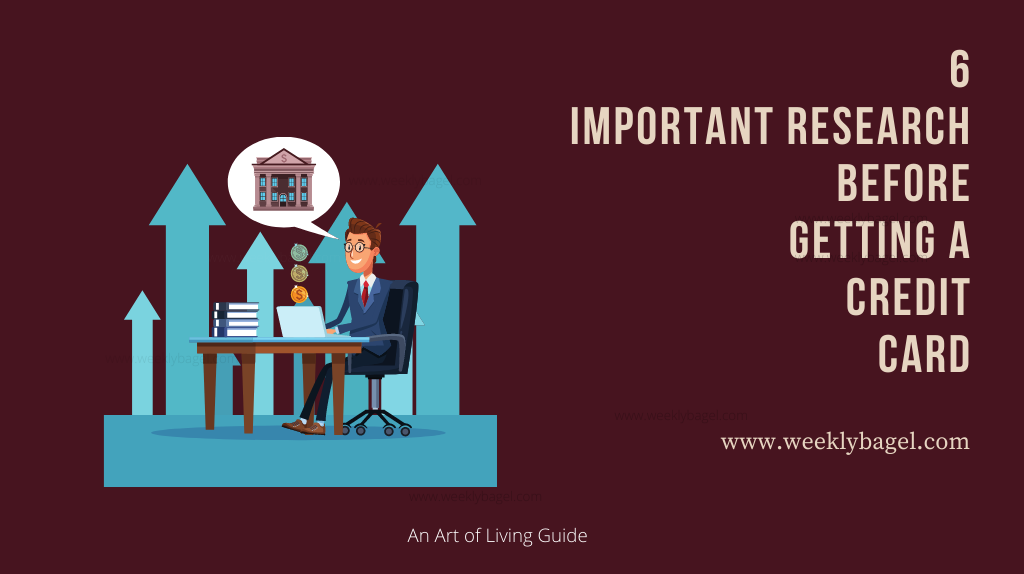
Credit cards are a make or a break. They can contribute positively to your life, or negatively take away your financial freedom. This is why it is important to understand the terms and conditions from the lender before getting a credit card. A lack of comprehension of the terms and conditions of a credit card usage can get you in serious debt. Since you are a hardworking adult with a bright future, the last thing you want is to spend years paying back a mounting debt.
Trust me. It is a miserable way to live.
According to The United States Consumer Debt Crisis, an average American has a minimum of four credit cards. The number of American credit card holders is about 189 million. That is about 57.9% of our country’s population. Out of the 57.9%, there is $8,398 in credit debt on average for each household. This is a big debt for low-income households , since it will take them years to pay it back.
To avoid being in a serious debt situation, there are important things you need to research before considering getting a credit card. Below are six of the most important ones.
What To Know Before Getting A Credit Card
These are the six important lists you need to scratch before getting a credit card. Make sure you research them well prior to application. This is because they are part of the terms and conditions of every financial institution.
1. Interest Rates on Credit Card
Lending institutions are businesses. They are there to provide financial services to you. For them to be able to sustain themselves in order to provide these services to you, they charge something called interest for every loan you get from them.
An interest is a monetary charge from a lender on borrowed money. The amount you borrow by a credit card is called principal. A credit card interest rate is set in percentage. Sometimes, you will see it as APR- Annual Percentage Rate. Annual Percentage Rate may be subjected to change every year.
Now, there are two types of a credit card interest rate. You have the fixed rate and the variable rate. A fixed rate does not change, but a variable rate is adjusted. A variable APR changes depending on purchase, cash back or late fees. Most American lenders will charge you a variable APR.
For example,
If your fixed interest rate is 10% on a $1000 credit card expenditure, you will pay $1000 back with $100 charged as interest. Let us say you negotiate to pay $100 monthly for ten months. The fixed rate of 10% on the $1000 will not change. Meaning- you will be paying $10 interest on the $100 monthly payment. That is 10% of $100.
On the other hand, a variable APR charges based on what you purchased or late fees. Let me elaborate. If your APR for a $1000 principal is 10%, it may change to 12% after awhile. Therefore, the 10% interest which is $100 will become $120, since the variable interest changed to 12%. This is why most financial institutions opt in for this kind of interest rate. It makes them a lot of money.
Lastly, do not forget to ask your bank what type of interest they charge. The type and rate are important, since they let you know whether you can afford to have a credit card. Read through their terms and conditions very well. Do not be shy to ask questions. Shyness can cost you a fortune, when you are considering getting a credit card.
2. Grace Time
Some credit card companies offer grace period. A grace period is a time where you will be charged 0% on your credit card; it is time given by a credit card company before interest application. Usually, it is six months to fifteen months. This differs from bank to bank. Be sure to inquire about whether your bank of interest has this offer.
Why is this important to you?
A grace period is important, because it gives you time to pay off your debt before it accrues an interest. If you spend $500 with a credit card which has 0% interest rate for fifteen months, you can negotiate to pay $50 monthly for ten months. At end of ten months, you have paid back your principal amount of $500 without more to it.
Do you get it now?
Under this circumstance, you can spend within your income limit without the anxiety of paying more than you borrow from the credit card. So, consider asking for a grace period prior to your application.
3. Associated Fees
Besides APR, there may be other fees attached to the credit card you are interested in getting. That is why it is important to research for additional fees. The notable ones are Annual fees, Penalty fees and Transaction Fees.
While some financial institutions do not charge annual fees on their credit cards, others do. Annual fees are fees which you pay for having the credit card. The outrageous thing about these fees is that you still get charged for it, whether you use the credit card or not. As long as you have it, you are expected to pay the annual fees on it. It is also called Annual Membership fee. It can range from $100 and above.
Crazy, isn’t it?
Well, that is why you need to research this before jumping into getting a credit card. In addition to annual fees, are the Transaction fees. Mostly, they are classified into transfer, cash advance and Foreign fees. They are literally what they mean. Foreign fees are high, while cash advance may be either 10% or 5% of each cash advance, whichever one is greater. These fees vary in different financial institutions.
Moreover, penalty fees are something you should not neglect to research before application. Some start from $38 and above. A penalty fee is not a constant fee. If you continue to get penalized for late payments, it can vary considerably.
Finally, there are other fees you should be aware of. Other fees like returned payment fees and over-the-limit fees. When you could not make your monthly payment back to your credit card due to insufficient fund, you will be charged a returned payment fee. This is an amount which is never more than your minimum payment. Additionally, over-the-limit fees are charged when you spend more than your credit limit. So, inquire about these fees before an application.
4. The Consequence Of A Credit Max Out
A credit max out is when you have spent nearly or all of the credit in your credit card. There are consequences to this kind of financial situation. These may include an increase in minimum payment, a bad report on your credit score and inability to use the credit card. Let me save you the some research time and put them here for you.
When you have maxed a credit card, most financial institutions increase the minimum monthly payment you make towards your debt. If you were making $25 monthly on a $300 debt, they will increase it to $30. A $25 minimum payment takes you about twelve months to pay off a $300 debt. Now, a $30 minimum monthly payment will take ten months. Banks and lenders do this to get their money fast from you, since you are good at overspending their money.
Please note that an increased minimum payment means an increased interest payment. From the example above, a 10% interest on a $30 monthly payment is $3. When compared to your usual 10% on $25 monthly payment, there is an increase of $0.50 cents. This is because your increased minimum monthly payment brought up your interest from $2.50 monthly to $3.00.
Next, you can damage your credit during a max out your credit card. This is especially in cases where your income to debt ratio is not balanced. Now, your credit score is important for borrowing loans. Each successful payment to your credit card debt is reported to the Credit Bureau. Most, if not all American financial institutions report to a Credit Bureau. In your case of successful payments, this report improves your credit score with time. But, your credit score drops during a credit max out.
Be aware of these consequences before you apply for a credit card. Your credit card institution will not go easy on you, when you are out there borrowing and spending without paying back. I need you to understand this is not your money. Since debtors cannot come calling, credit card institutions will punish financially through these means.
5. Your Current Debt
If you have a current debt, it is important to assess the impact of an additional debt from a credit card. This is because it is a bad decision to apply for a credit card while drowning in other debts. It will not do you any good, especially when you are a low-income earner. It will dig your financial grave so deep you may never crawl your way out of it, without an increase in income or a financial relief.
Furthermore, consider what you are getting the card for. If your goal is to pay off other debts with it, it is another bad financial decision. Never pay a debt with a credit card. This is because you are not paying any debt, rather you are adding to your previous debt. Now, you are going to have a big debt with a big interest.
This fifth consideration is important, since it saves you the hassles of being tied down financially because of mounting debts. Do not neglect to assess your current debt and the impact of the card you are about to get.
6. Your Qualifications
Not everyone is qualified for a credit card. Before you consider getting one, I would like to sit down and think about your qualifications. By qualifications, I do not mean your degrees and such. Nay- I meant your ability to maintain the card, borrow responsibly from the card and pay back card debt.
There are three major qualifications financial institutions look at, when considering credit card application.
- Income
- Credit or FICO Score
- Current Debt
Your income has to be able to pay your debt without upsetting your other financial responsibilities. This is why some banks have categories of credit cards based on income. It is to prevent financial irresponsibility from people of different income levels. If your income is able to handle any debt accrued on the credit card, then they will skip to the next consideration.
Next, they will consider your credit score. A credit score measures your ability to handle your financial responsibilities timely. These financial responsibilities include your rent, car notes, insurance and other debts. A good credit score tells the banks that you pay reoccurring debts on time; also, you complete your debt amounts without being chased by debt collectors. No financial institution wants the stress of sending debt collectors after you.
Lastly, your current debt is evaluated. They run a credit report on you. If your credit report comes with a lot of bad news, then you are bad news. No good financial institution will loan you money, if you are drowning in unpaid debts. Now, do not get me wrong. There are some credit card sharks which will take advantage of your current debt to add more financial mess on your life.
Run away from them. They are there to take advantage of you. If you know that you are not qualified to open a credit card due to debts, stay away from opening one.
Sounds like we have come to the end of this week’s post. Please do not disregard these points. Keep them in during your application. Good luck!
Resources
Writer, AuthorBill FayStaff. “The U.S. Consumer Debt Crisis.” Debt.org, 7 Nov. 2019, www.debt.org/faqs/americans-in-debt/.




 Why You Need An Emergency Fund: 7 Unavoidable Reasons
Why You Need An Emergency Fund: 7 Unavoidable Reasons